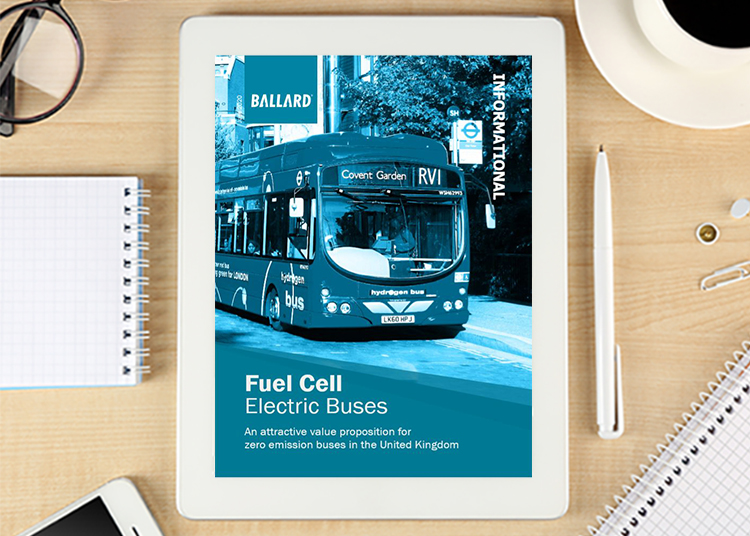An attractive value proposition for zero-emission buses in the United Kingdom
- Like
- Digg
- Del
- Tumblr
- VKontakte
- Buffer
- Love This
- Odnoklassniki
- Meneame
- Blogger
- Amazon
- Yahoo Mail
- Gmail
- AOL
- Newsvine
- HackerNews
- Evernote
- MySpace
- Mail.ru
- Viadeo
- Line
- Comments
- Yummly
- SMS
- Viber
- Telegram
- Subscribe
- Skype
- Facebook Messenger
- Kakao
- LiveJournal
- Yammer
- Edgar
- Fintel
- Mix
- Instapaper
- Copy Link
Posted: 13 July 2020 | Ballard Power Systems | No comments yet
Transit agencies and operators in the UK need to find ways to improve air quality in their communities while maintaining quality of service. The choice that face cities and transit authorities is what technology to deploy; fuel cell electric buses or battery electric buses.
There is no doubt that the future of public transportation is going to be zero emission. The bold plan announced by the Department for Transport (DfT) to deploy 4,000 zero emission buses within five years represents a significant leading edge of the anticipated rapid growth in zero emission fuel cell-powered buses as we move forward in Europe.
Transit agencies and operators in the UK are being called to find ways to improve air quality in their communities while maintaining quality of service. The choice that faces cities and transit authorities is what technology to deploy. Transit operators can consider two zero emission electric bus solutions: fuel cell electric buses (FCEBs) or battery electric buses (BEBs).
FCEBs are electric buses which offer all the benefits of BEBs while facilitating large scale deployments. FCEBs fuelled with hydrogen are the only zero-emission technology to match diesel fleets with complete route flexibility, short refuelling time and similar depot space utilization.
With more than 15 years on the road and millions of kilometres in passenger service, FCEBs have proven their performance. FCEBs have demonstrated reliable operation long daily drive cycles during all seasons in challenging geographies.
Over 2,000 fuel cell buses have been delivered to transit operators around the world. Ballard is currently powering more than 70 FCEBs in Europe. Most recently in the UK, there were 20 FCEBs operating, including buses supplied by Wrightbus and Van Hool and powered by Ballard fuel cells. In the coming years, over 100 new fuel cell electrics buses are planned to be deployed in London, Aberdeen, Belfast, Dundee, Birmingham, Brighton, Liverpool, Glasgow and Dublin.
The potential for growth is immense, with financial incentives available at regional, national and European levels to support the deployment of fuel cell electric buses and hydrogen refuelling stations. Analysis performed by both Deloitte China and McKinsey & Company shows that a number of hydrogen solutions can become competitive by 2030. There is a clear line of site to a positive payback, with fuel cell electric vehicles projected to be less expensive to run than battery electric and internal combustion engine vehicles within 10-years.
Read on to learn more about the benefits of zero-emission FCEBs for public transportation in the UK.
Click here to find out which zero-emission bus type is best for your fleet >>
Related content from this organisation
Related topics
Alternative Power
Related organisations
Ballard Power Systems








